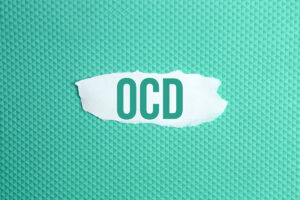 Obsessive-compulsive disorder (OCD) is a debilitating anxiety disorder that creates an ongoing cycle of intrusive thoughts and repetitive behaviors, prohibiting those struggling with it from living without restraint. It is widely recognized as one of the most commonly diagnosed anxieties. However, the good news is that, with the help of our OCD treatment in Seattle, our clients can begin to manage mental health conditions like anxiety and lead full, healthy lives.
Obsessive-compulsive disorder (OCD) is a debilitating anxiety disorder that creates an ongoing cycle of intrusive thoughts and repetitive behaviors, prohibiting those struggling with it from living without restraint. It is widely recognized as one of the most commonly diagnosed anxieties. However, the good news is that, with the help of our OCD treatment in Seattle, our clients can begin to manage mental health conditions like anxiety and lead full, healthy lives.
LightHeart Associates offers specialized mental health treatment tailored to each client’s needs. Our therapists and counselors have extensive training and experience in treating obsessive-compulsive disorder through evidenced-based practices such as cognitive-behavioral therapy (CBT), dialectical behavior therapy (DBT), exposure and response prevention (ERP), and medication management. Our OCD therapy aims to help clients identify their triggers, develop healthy coping skills, and learn how to manage their anxiety. If you are searching for OCD treatment for yourself or a loved one, contact our team at 425.800.5688 to learn more about our OCD treatment center.
An Overview of OCD
Obsessive-compulsive disorder is an anxiety condition that causes individuals to have irrational, intense reactions to things most people wouldn’t give a second thought. The two fundamental facets of this ailment are obsessions and compulsions.
Obsessions are recurrent, intrusive thoughts or sensations. For example, these can be thoughts of a burglar breaking into a person’s home or dangerous germs crawling over their skin. Compulsions are repetitive actions that people with OCD are driven to complete due to obsessions. These behaviors include locking and relocking the front door or devoting an extreme amount of time to cleaning.
Some common fixations people with OCD might experience include:
- Contamination – From bodily fluids, germs, dirt, chemicals, and more
- Losing control – Acting on an impulse to harm themself or others, stealing things, blurting out obscenities or other comments
- Harm – Intentionally doing something that hurts others or failing to be careful
- Perfectionism – Concern about precision or exactness, evenness, losing or forgetting things
- Unwanted sexual thoughts – Perverse, forbidden, or aggressive sexual thoughts that cause distress
- Religious – Fear of offending God or concern with ethics or morality
- Superstitions – Related to lucky or unlucky numbers, objects, dates, and more
With obsessive-compulsive disorder, ruminating on these intrusive thoughts and compulsive behaviors can be incredibly taxing and seriously influence one’s life. An individual with OCD may struggle to perform daily activities like making breakfast or running errands due to their obsessions and compulsions. For an official diagnosis of OCD, the affected person must endure such persistent thought patterns for at least sixty minutes each day and feel anxious.
What OCD Is Not
For decades, pop culture has helped establish many stereotypes about obsessive-compulsive disorder. People who are very meticulous or keep their spaces very clean might sometimes even be heard uttering an apology or explanation to the effect of, “Sorry, just my OCD acting up again.” Many people have routines and are particular about certain aspects of their lives. This is normal.
However, when routines become so extreme that they impede our everyday lives, then OCD may be at play. While an organized person might keep their desk tidy for efficiency, someone with OCD can spend copious amounts of time and emotion attempting to achieve perfection in the space—all while struggling to leave their home to go about daily tasks such as working or connecting with loved ones.
Signs and Symptoms of OCD
The symptoms of obsessive-compulsive disorder can be traced back to the two primary components of the condition: obsessive thoughts and compulsive behaviors. Obsessions and compulsions can look very different from person to person. Fixating on obsessions and compulsions can cause symptoms such as:
- Hoarding
- Nightmares
- Panic attacks
- Avoiding triggers
- Guilt or stress over compulsive behaviors
- Disturbing intrusive thoughts or images
- Repeatedly checking things
- Constantly seeking reassurance or approval
- Extreme concern with order or cleanliness
If you or a loved one is exhibiting any of these signs and symptoms, it might be time to consider seeking our help from an OCD treatment.
What Can Cause OCD?
Obsessive-compulsive disorder is complicated and can be caused by various risk factors. Studies show that the foremost contributors to OCD are genetic and biological influences, making some people more likely than others to experience this condition.
Genetic Causes
Studies involving identical twins and the immediate families of people with obsessive-compulsive disorder have suggested that genetic risk factors play a significant role in whether or not a person is at risk of developing OCD. However, research has not identified a single gene that causes OCD. Instead, there are different versions or alleles of several genes that may contribute to a person’s OCD risk.
Biological Causes
Our bodies rely on several biochemicals to function properly. Early research suggests that the neurotransmitter serotonin, which also impacts the risk of an individual developing depression or generalized anxiety, may play a role in OCD risk as well.
Environmental Causes
A genetic predisposition towards a specific mental health condition does not necessarily mean it will develop. People who develop OCD can experience environmental factors that impact their mental health. Prenatal weight gain, difficult labor, traumatic events, and abuse are all linked to OCD risk.
What to Expect in Our OCD Treatment
Like any complex disorder, treating OCD involves working with a mental health professional to develop a plan based on a client’s unique situation. Treatment for obsessive-compulsive disorder might include:
- Cognitive-behavioral therapy (CBT) – Talk therapy teaches clients strategies for altering their behavior.
- Transcranial magnetic stimulation (TMS) therapy – TMS is an FDA-approved treatment for OCD and other mental health conditions that involves stimulating certain parts of the brain with magnetic pulses to promote healing.
- Medication – Certain medications can help alleviate symptoms and address the biological roots of obsessive-compulsive disorder.
- Exposure and response prevention (ERP) therapy – This therapy involves exposure to triggers in a controlled environment to alter a participant’s perception of the trigger.
Understanding options for OCD treatment is the first step in finding a path towards recovery. If you or someone you love is struggling with OCD, don’t hesitate to ask for help.
Benefits of OCD Treatment
Our OCD treatment is an invaluable part of recovery for those struggling with obsessive-compulsive disorder. The treatment can help individuals:
- Gain control over unwanted intrusive thoughts and behaviors
- Create healthier coping skills
- Manage anxiety and distress levels
At an OCD treatment center, clients can learn to identify triggers better, understand their unique behaviors, and develop skills to confront potential problems in the future. By enrolling in a tailored OCD treatment, you or someone close to you can gain increased autonomy and optimism about life and become more socially engaged. Don’t delay—take the initiative to get yourself or your loved one the necessary help.
Find OCD Treatment in Seattle at LightHeart Associates
At LightHeart Associates, we help people in our communities access life-changing mental health care. We are among the best-established mental health practices in Seattle. Our services are tailored to suit all kinds of people, including couples, individuals, young adults, children, and teens, in addition to everyone else. We have crafted an array of offerings that will perfectly meet the needs of any person.
If you believe you are experiencing an anxiety disorder like OCD, contact LightHeart Associates today at 425.800.5688 to learn what our OCD therapy program can do for you.
